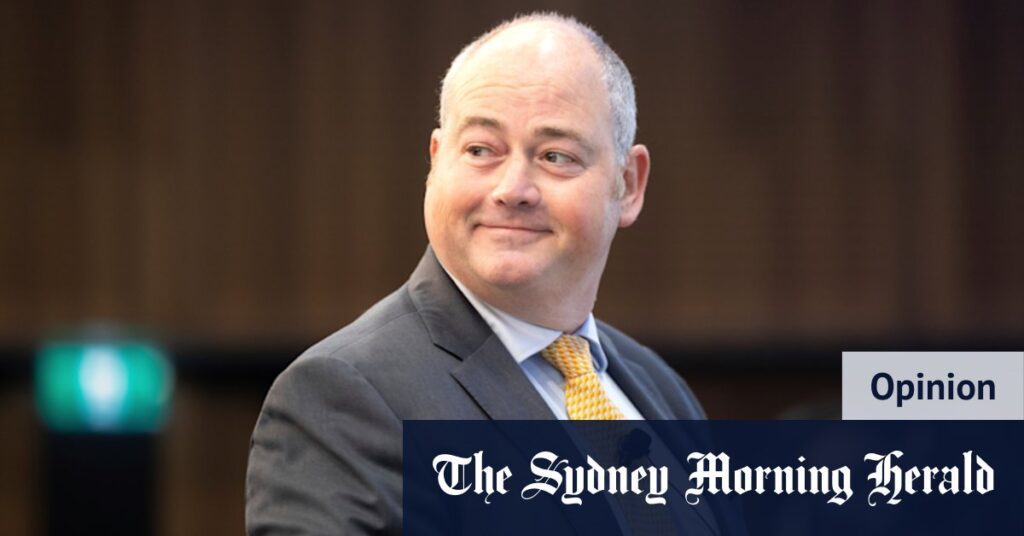
For National Australia Bank boss Andrew Irvine, there was nowhere to hide. The headline-making executive found himself thrust into the spotlight at the Australian Banking Association conference on Wednesday, amid swirling allegations about his drinking habits and management style. As the chair of the conference, Irvine had no option but to face the music, unable to delegate his responsibilities.
The allegations, which emerged last week, have sent ripples through banking circles. Shareholders have reportedly expressed concerns over Irvine’s behavior, leading to informal “wine” audits by analysts and shareholders alike. While the media frenzy hasn’t quite reached the levels of the infamous Coldplay kiss-cam incident involving Astronomer chief Andy Byron, Irvine has nonetheless become a reluctant focal point in Australia’s business community.
Background on the Allegations
The controversy surrounding Andrew Irvine began when unnamed shareholders voiced apprehensions about his alleged excessive drinking and its potential impact on his leadership. These claims have sparked a broader conversation about corporate governance and the personal conduct of executives in high-profile positions.
According to insiders, the issue was initially raised during a private meeting of major stakeholders, which quickly gained traction and made its way into the public domain. The timing of these allegations is particularly critical, given the ongoing scrutiny of corporate ethics in the banking sector following the Royal Commission into Misconduct in the Banking, Superannuation and Financial Services Industry.
Industry Reactions and Expert Opinions
Reactions from within the banking industry have been mixed. Some colleagues have come to Irvine’s defense, citing his long-standing reputation as a competent leader. However, others have expressed concerns about the potential reputational damage to NAB and the broader implications for the industry.
Corporate governance expert Dr. Lisa Thomas commented,
“This situation underscores the importance of maintaining a professional image, particularly in an industry that is still rebuilding trust with the public. Executives must be mindful of their conduct both in and out of the office.”
Meanwhile, analysts are closely watching how NAB’s board will respond to these allegations. There is speculation about whether the board will initiate a formal investigation or take other measures to address shareholder concerns.
Historical Parallels and Broader Implications
This isn’t the first time a high-ranking executive has faced scrutiny over personal conduct. The banking sector has seen its share of controversies, with past incidents often leading to significant changes in corporate policies and leadership structures.
Historically, such scandals have prompted banks to tighten their governance frameworks and implement stricter codes of conduct. The current situation with Irvine may well lead to similar reforms, particularly if the allegations are substantiated.
According to a recent survey by the Australian Institute of Company Directors,
“Over 60% of respondents believe that personal conduct should be a critical factor in assessing an executive’s suitability for leadership roles.”
This sentiment reflects a growing demand for accountability and ethical behavior at the highest levels of corporate leadership.
Looking Ahead: Potential Consequences and Next Steps
The future for Andrew Irvine and NAB remains uncertain. If the allegations continue to gain traction, Irvine may face increasing pressure to step down or take a leave of absence while the matter is investigated. The bank’s board will likely need to act decisively to reassure stakeholders and maintain confidence in its leadership.
In the meantime, the banking community will be watching closely to see how this situation unfolds. The outcome could set a precedent for how similar issues are handled in the future, both within NAB and across the industry.
As the story develops, stakeholders and observers alike will be keenly interested in the measures NAB takes to address these concerns and restore trust in its leadership.





